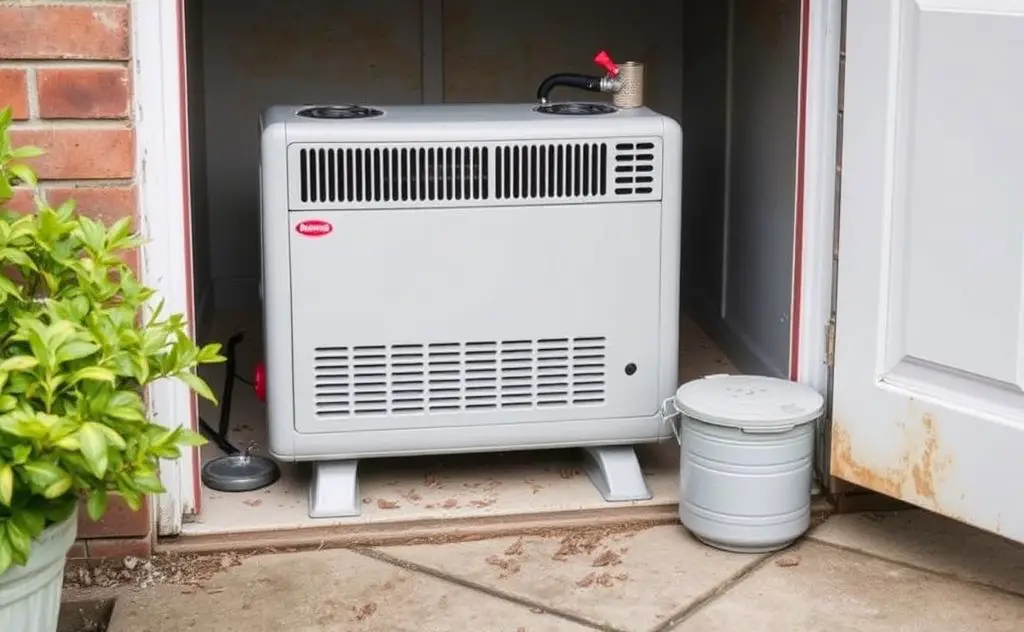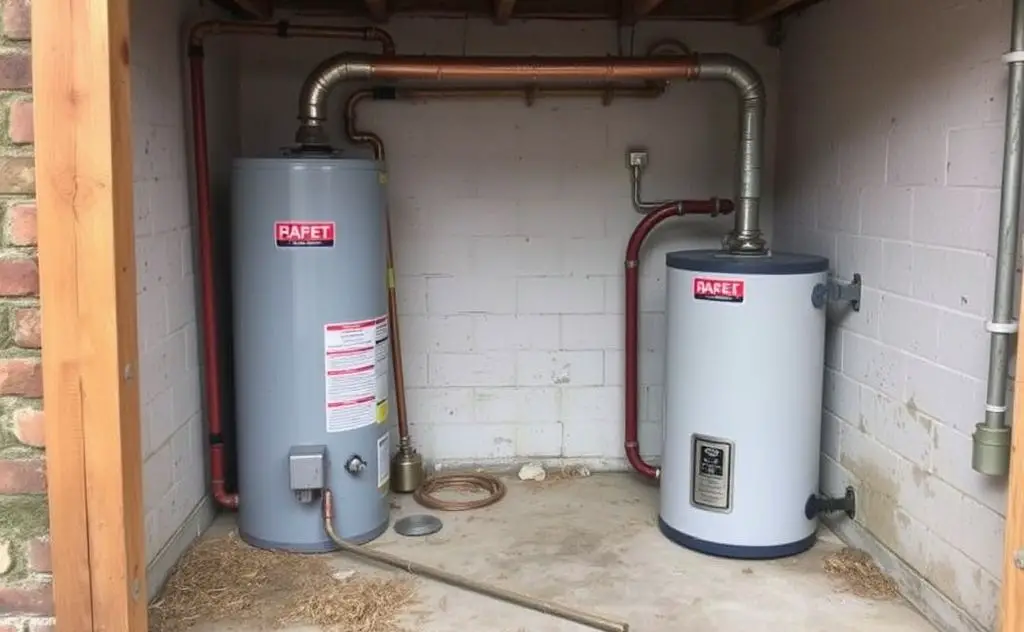To store a gas heater when not in use, ensure it’s turned off, clean it thoroughly, disconnect the gas supply, and keep it in a dry, well-ventilated area.
Proper storage of a gas heater ensures safety, extends its lifespan, and prevents costly repairs. Whether it’s a portable propane heater or a built-in gas unit, following the right steps is crucial.

Step-by-Step Gas Heater Storage Guide
1. Turn Off and Disconnect Fuel Supply
Always shut off the gas valve completely before storage. For propane heaters, remove the tank and store separately. Natural gas units should have their supply line shut off at the main valve.
2. Clean the Heater Thoroughly
Remove dust and debris using a soft brush or cloth. Pay special attention to:
- Burners and vents
- Control panels
- Air intake areas
3. Drain Water From Condensation (If Applicable)
Some gas heaters accumulate condensation. Check your manual for drainage instructions. For built-in gas heaters, this step is especially important.
4. Protect From Moisture and Dust
Cover with a breathable fabric or use the manufacturer’s cover. Avoid plastic wraps that trap moisture. For outdoor units, consider a weatherproof cover.

Choosing the Right Storage Location
| Location | Pros | Cons |
|---|---|---|
| Garage | Protected from weather | Potential temperature fluctuations |
| Basement | Stable temperature | Possible humidity issues |
| Shed | Dedicated space | May require insulation |
Safety Precautions During Storage
Carbon Monoxide Risks
Even in storage, gas heaters can leak. The Better Health Channel recommends installing CO detectors near storage areas.
Fire Prevention
Store at least 3 feet from flammable materials. Consider fireproof storage solutions for indoor propane heaters.
Long-Term Storage Maintenance
Regular Inspection Schedule
- Monthly visual checks for rust or damage
- Quarterly component inspections
- Annual professional servicing
Preparing for Seasonal Use
When bringing out of storage:
- Check all connections for leaks with soapy water
- Test ignition systems
- Verify proper ventilation
Special Considerations for Different Heater Types
Portable Propane Heaters
According to Massachusetts safety guidelines, propane tanks should always be stored upright outdoors.
Wall-Mounted Units
These typically require less maintenance but benefit from periodic dusting and component checks during storage periods.
Vent-Free Heaters
Require extra attention to oxygen sensors and burners before storage to prevent corrosion.
